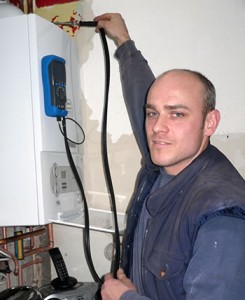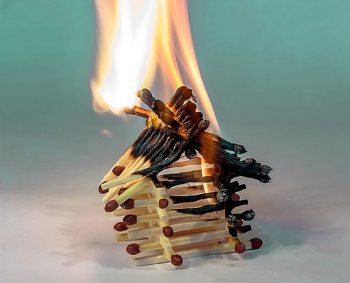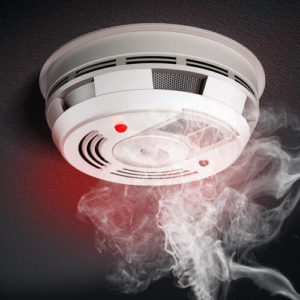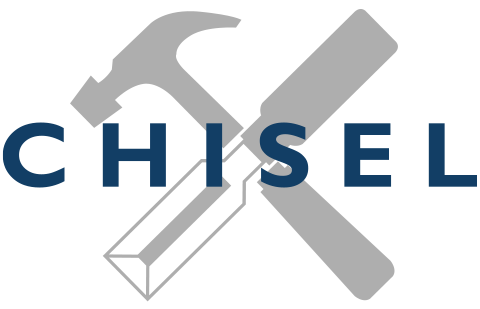Gas leaks
 If you smell gas:
If you smell gas:
- Extinguish any cigarettes and do not ignite a match or use any other naked flames.
- Avoid using electrical switches (including light switches).
- Open doors and windows to get rid of the gas.
- Check if a pilot light has blown out, or if you have left a gas ring on your cooker.
If you suspect a leak turn off the gas supply at the meter and telephone the National Gas Emergency Service on 0800 111 999. Please remember that we need to give authorisation for any repairs that are our responsibility.
Electrical safety
- Find out how to switch off the mains supply - if you are not sure how to do this, ask us now.
- NEVER take an electrical appliance into the bathroom.
- Avoid running electrical wires under carpets or lino, where you cannot see if they start to wear out.
- Get a qualified electrician to deal with electrical repairs to electrical appliances - don't do them yourself.
- Avoid overloading electrical sockets.
Fire
 You can reduce the risk of fire by being careful and taking some simple precautions:
You can reduce the risk of fire by being careful and taking some simple precautions:
- Fit a smoke alarm in your home (if you live in shared accommodation we will provide a smoke alarm). If you need to buy an alarm, you will be able to get one from shops such as B&Q and Homebase. Make sure the smoke alarm you buy conforms to the British Standard and the packaging has a kitemark on it.
- Make sure that all fires are properly guarded - especially if you have young children.
- Make sure all electrical appliances are correctly fused.
If a fire does break out, what should you do?
- DO NOT ATTEMPT TO TACKLE IT YOURSELF. Smoke and fumes can kill in minutes.
- CLOSE ALL THE DOORS to contain the fire and stop the smoke spreading.
- GET EVERYONE OUT of the house if it is safe to do so. If no safe route out, go to the safest place inside and await rescue. Tell Fire Service and anyone nearby your location.
- CALL 999 and ask for the Fire Service.
- DON’T GO BACK inside the property for any reason.
General fire safety advice is included below and is also available at:
https://www.london-fire.gov.uk/safety/
What is CHISEL doing to help keep residents safe from risks of fire?
- We undertake fire risk assessments (FRAs) in all our shared housing, blocks of flats, and houses that are converted into flats which are above 3 storeys. These are undertaken by a qualified external consultant.
- Our Neighbourhood Managers deliver a planned programme of scheme inspections to ensure all communal areas are kept clear from fire risks.
Fire Safety Advice for residents
 Here are some precautions you can take to help keep your home and family safe from fire:
Here are some precautions you can take to help keep your home and family safe from fire:
- Test your smoke alarm weekly by pressing the button. Keep your smoke alarm free of dust and keep spare batteries handy. You can find more information on this at: fireservice.co.uk/safety/smoke-alarms
- It is safer not to smoke but if you do, try to smoke outside. Never smoke in bed (or anywhere else where you might fall asleep), make sure cigarettes are properly stubbed out and never throw hot ash in bins
- Keep matches and lighters away from children
- Take care with candles: use proper holders and keep them away from curtains, furniture and clothes
- Don’t overload electrical sockets, try and keep to one plug per socket. Certain appliance, like washing machines should have a single plug to themselves, as they are high powered.
- Make sure electrical appliances have a British or European safety mark when you buy them.
- Never leave pans unattended when cooking
- Avoid the use of pans full of oil for cooking. If the pan does catch fire, never throw water on it. Cover the pan with a damp tea towel and turn off the heat. If the pan is still alight, leave the room, shut the door, warn others and call 999.
- If you have door closers fitted, don’t wedge the door open or remove the closer
- When you go to bed, make sure all candles are out and cookers and heaters are turned off. Close doors when you go to bed to stop fires spreading
- Switch off any non-essential electrical items like TVs at the mains and don’t charge mobiles and laptops overnight.
- Do not leave appliances such as dishwashers and tumble driers running when you leave the house.
- Never bring motorbikes, mopeds or motor scooters inside the property. Read the latest governement guidelines about e-scooters and their batteries
- Don’t use fire pits, BBQs and other outdoor equipment designed to be used outdoors inside your home.
- Don’t store anything in common areas such as corridors or electrical cupboards. Wanted or unwanted items left in shared areas, landings or corridors act as fuel for a fire and prevent people escaping in the event of a fire.
- Know your escape route before a fire happens
Simple measures such as this reduce fire risk.

